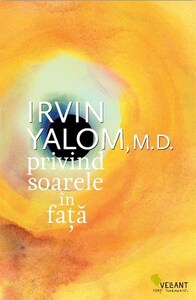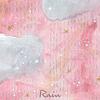You need to sign in or sign up before continuing.
Take a photo of a barcode or cover
This book is the latest in the trend to offer help to people simply by collecting others' stories. Yalom uses approximately eight cases from his years as a therapist to discus death anxiety. I found several problems with this book and do no recommend it.
My first point of contention would be that the therapist has made his own views oppressive while reassuring the reader that he is simply being honest and not intending to influence you in the least. His disdain for religion and spiritual beliefs is overbearing and forces me to cringe at his stark look at life.
The author repeatedly asserts that he places no value in anything that cannot be proven but is annoyed by the young psychiatrist that refuse to spend ample time dissecting all layers of dream metaphors. Indeed, it is telling that each of the patients he chose to share in the book had illuminating dreams during their therapy sessions that all but fixed their neuroses.
I was disappointed that Yalom fell victim to his own criticism of Freud. Yalom fervently cried that Freud was incorrect in his assessment of death anxiety: that it masks another fear. However, each of the cases Yalom chose to include in this work are perfect examples of Freud's assertion. Each of the patient had a deeper rooted fear that was articulated through death terror. I was supremely disappointed to see this because it meant that none of these patients were a good teaching tool for people, like myself, who honestly fear death.
I felt that Dr. Yalom was correct in saying that adding personal memories during therapy has a time and place. This was not the place. The longest section of the entire book is a reflection at the therapists' life. I found this arrogant and inappropriate.
I was hoping to find a work that I could read and take away some greater knowledge of death anxiety. This was simply not the best book to do that. I did not come across any helpful advice or even ground breaking therapy techniques. I purchased this book on the hype that I had read about this author's previous works but not regret that decision. This book was not in the least helpful to someone who wants to overcome death anxiety.
My first point of contention would be that the therapist has made his own views oppressive while reassuring the reader that he is simply being honest and not intending to influence you in the least. His disdain for religion and spiritual beliefs is overbearing and forces me to cringe at his stark look at life.
The author repeatedly asserts that he places no value in anything that cannot be proven but is annoyed by the young psychiatrist that refuse to spend ample time dissecting all layers of dream metaphors. Indeed, it is telling that each of the patients he chose to share in the book had illuminating dreams during their therapy sessions that all but fixed their neuroses.
I was disappointed that Yalom fell victim to his own criticism of Freud. Yalom fervently cried that Freud was incorrect in his assessment of death anxiety: that it masks another fear. However, each of the cases Yalom chose to include in this work are perfect examples of Freud's assertion. Each of the patient had a deeper rooted fear that was articulated through death terror. I was supremely disappointed to see this because it meant that none of these patients were a good teaching tool for people, like myself, who honestly fear death.
I felt that Dr. Yalom was correct in saying that adding personal memories during therapy has a time and place. This was not the place. The longest section of the entire book is a reflection at the therapists' life. I found this arrogant and inappropriate.
I was hoping to find a work that I could read and take away some greater knowledge of death anxiety. This was simply not the best book to do that. I did not come across any helpful advice or even ground breaking therapy techniques. I purchased this book on the hype that I had read about this author's previous works but not regret that decision. This book was not in the least helpful to someone who wants to overcome death anxiety.
informative
inspiring
reflective
medium-paced
Excellent and insightful. I have read a couple of psychology books, all interesting, but this is the most lyrical one so far. Dr Yalom has such a way with words and yet does not undermine or isolate the reader - most poignantly in his chapter dedicated to therapists. He comes across as likeable and knowleable and is able to apply wider reading, namely refering to great philosophers, to his word as well as building from embedded psychotherapy. I am left with much to do and much to think about pertaining to my own morality and, most excitingly, some further reading!
Second read of this. The first time was at a time in my life when I was experiencing severe death anxiety and it gave me a lot of peace. This time death wasn't heavy on my mind, so I was curious how much it would ring true for me.
Some parts are a bit "too good to be true", but if forgiven provide a wonderful insight in living at peace with death. Helped just as much as the first go.
9/10
Some parts are a bit "too good to be true", but if forgiven provide a wonderful insight in living at peace with death. Helped just as much as the first go.
9/10
challenging
dark
emotional
hopeful
informative
inspiring
mysterious
reflective
sad
slow-paced
Yalom nem csak írja/mondja, hogy ugyan olyan földi halandó, mint mi – holott közben egy világhírű szaktekintély –, hanem érződik a cselekedetein is, melyeket megír. Talán ez az, ami miatt megszerettem, és amiért elhatároztam, hogy ha apránként is, de az életművét szeretném elolvasni. A Schopenhauer-terápia egy történeten keresztül tanítja az olvasót, ám a Szemben a nappal lapjain Yalom doktorral is megismerkedhettem.
Bővebben: http://www.teklakonyvei.hu/2019/01/irvin-d-yalom-szemben-nappal.html
Bővebben: http://www.teklakonyvei.hu/2019/01/irvin-d-yalom-szemben-nappal.html
informative
reflective
fast-paced
Death from various facets of therapy. Sessions with different difficult cases and the authors personal evaluation. Something one would have to read if a therapist, dealing with these univerals.
For the lay reader the text is too fragmented, and repetitive, we see a dance arouns death that does not capture what we know and feel is true. It is useful but not the source to understand things better I was expecting.
For the lay reader the text is too fragmented, and repetitive, we see a dance arouns death that does not capture what we know and feel is true. It is useful but not the source to understand things better I was expecting.
"ни на солнце ни на смерть нельзя смотреть в упор"
Тема конечно крайне неприятная, тем более когда твоя жизнь давно перевалила середину.
И крайне сложная - мы все привыкли решать проблемы, у нас возникает депрессия если что-то нельзя либо починить либо обойти. И неизбежная смерть, конечно, запросто вгонит любого в депрессию, если попытаться привычно "решить эту проблему".
Автор считает что об этом, тем не менее, полезно задумываться каждому.
И, очевидно, он прав - осознание конечности жизни неизбежно догонит каждого, и если это произойдет неожиданно, то возникнет клиническая депрессия.
Ну а рецептов тут, конечно, просто не может быть.
Со смертью надо смириться.
В нашем мозгу предусмотрены мощные самоблокировки, которые помогают нам полноценно жить.
Но раз уж у нас есть такой дар (или бремя) как сознание, оно рано или поздно найдет способ эти блокировки обойти. И лучше быть готовым к этому, чтобы в такие моменты не разваливаться психологически.
Тема конечно крайне неприятная, тем более когда твоя жизнь давно перевалила середину.
И крайне сложная - мы все привыкли решать проблемы, у нас возникает депрессия если что-то нельзя либо починить либо обойти. И неизбежная смерть, конечно, запросто вгонит любого в депрессию, если попытаться привычно "решить эту проблему".
Автор считает что об этом, тем не менее, полезно задумываться каждому.
И, очевидно, он прав - осознание конечности жизни неизбежно догонит каждого, и если это произойдет неожиданно, то возникнет клиническая депрессия.
Ну а рецептов тут, конечно, просто не может быть.
Со смертью надо смириться.
В нашем мозгу предусмотрены мощные самоблокировки, которые помогают нам полноценно жить.
Но раз уж у нас есть такой дар (или бремя) как сознание, оно рано или поздно найдет способ эти блокировки обойти. И лучше быть готовым к этому, чтобы в такие моменты не разваливаться психологически.
hopeful
informative
inspiring
fast-paced





